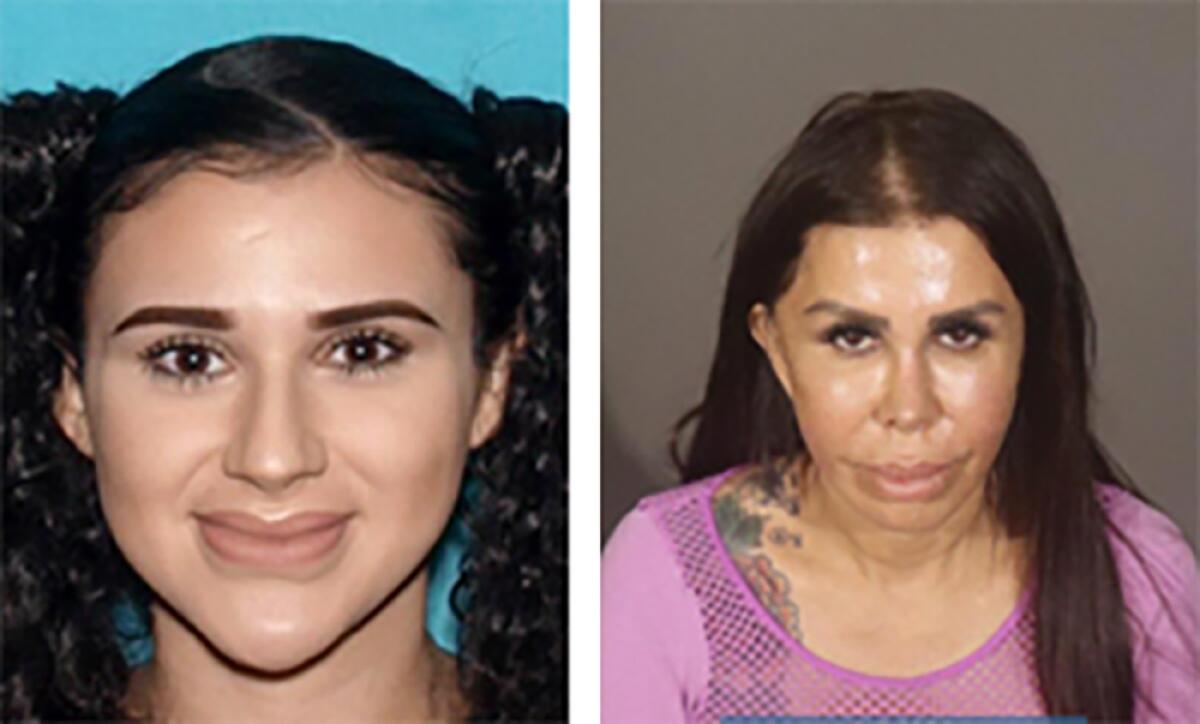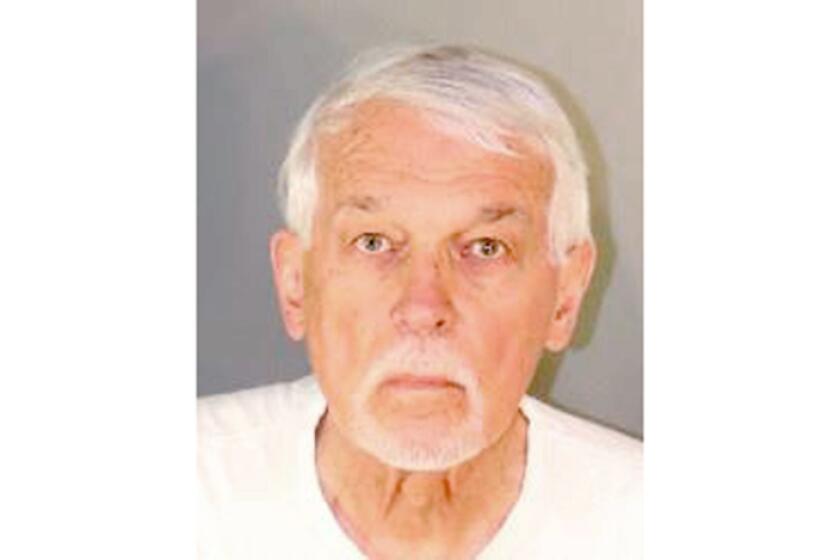Women charged in silicone injection death had seen it go wrong before, prosecutors say

- Share via
Two women charged with killing a 26-year-old woman by giving her a fatal dose of silicone to enlarge her buttocks in 2019 had seen the unlicensed procedure turn deadly before, prosecutors argued in court.
Libby Adame, 53, and Alicia Galaz, 25, both of Riverside, are on trial in the death of Karissa Rajpaul, who died shortly after the mother and daughter injected her with silicone at a home in Sherman Oaks.
Rajpaul, of Los Angeles, started to lose consciousness after the procedure, but Los Angeles police said Adame and Galaz fled the scene, leaving paramedics unaware that Rajpaul had undergone the risky cosmetic procedure.
“As a result, the victim died in an emergency room with tending physicians unaware of the silicone injection,” police said at the time of their arrest.
On Tuesday, prosecutors told jurors the two defendants had seen such risky injections turn deadly before, the Los Angeles Daily News reported.
About a year before Rajpaul’s death, prosecutors said, Adame and Galaz were seen in security camera footage in the parking lot behind a salon in South Gate just as paramedics rushed in through the front door to treat another woman who had lost consciousness after getting an injection.
Paramedics tried unsuccessfully to revive the woman, Karina Arias, Deputy Dist. Atty. Lee Cernok, told the jury.
It is unclear why no charges were filed in that death. Cernok said in court that Arias’ case was under investigation when investigators became aware of Rajpaul’s death.
Cernok said that despite knowing the risks, the mother and daughter performed the procedure for about a decade, earning a following on social media.
“They kept going and going and going, to make money,” said Cernok, according to the Daily News.
Attorneys for Adame and Galaz meanwhile, argued on Tuesday that the silicone injections used to enlarge buttocks are not illegal in California and called the deadly incident an accident.
Erin Moriarty fired back at Megyn Kelly, who alleged ‘The Boys’ star underwent plastic surgery. She also announced a social media break. ‘It’s broken my heart,’ she wrote.
Marco Gianuzzi, Rajpaul’s husband, testified Tuesday that the defendants performed the procedure on his wife a total of three times, including the deadly incident in 2019.
Gianuzzi, the Daily News reported, said he was aware of the first two procedures, but his wife hid the third one from him because she knew that he objected to it.
The two women have been charged with one count of murder and three counts of practicing medicine without a license.
The risky procedure has become more popular in recent years, leading to other deaths.
In May 2023, Vivian Alexandra Gomez was extradited from Florida to California to face charges of involuntary manslaughter and practicing medicine without a valid license after she allegedly gave silicone injections to a social media model known for her resemblance to Kim Kardashian.
David Helbling, who according to his social media account is a pastor with Assemblies of God USA, was charged with sexual assault of a child.
Court records indicate Gomez’s case is still pending.
With the silicone buttocks injections growing in popularity, the U.S. Food & Drug Administration has issued warnings against them, reminding people that they are not FDA approved.
“Silicone injections can lead to long-term pain, infections, and serious injuries, such as scarring and permanent disfigurement, embolism (blockage of a blood vessel), stroke and death,” the agency said.
The FDA warns consumers not to buy the fillers online,or have liquid silicone injected into their bodies by unlicensed providers in nonmedical settings.
More to Read
Sign up for Essential California
The most important California stories and recommendations in your inbox every morning.
You may occasionally receive promotional content from the Los Angeles Times.















